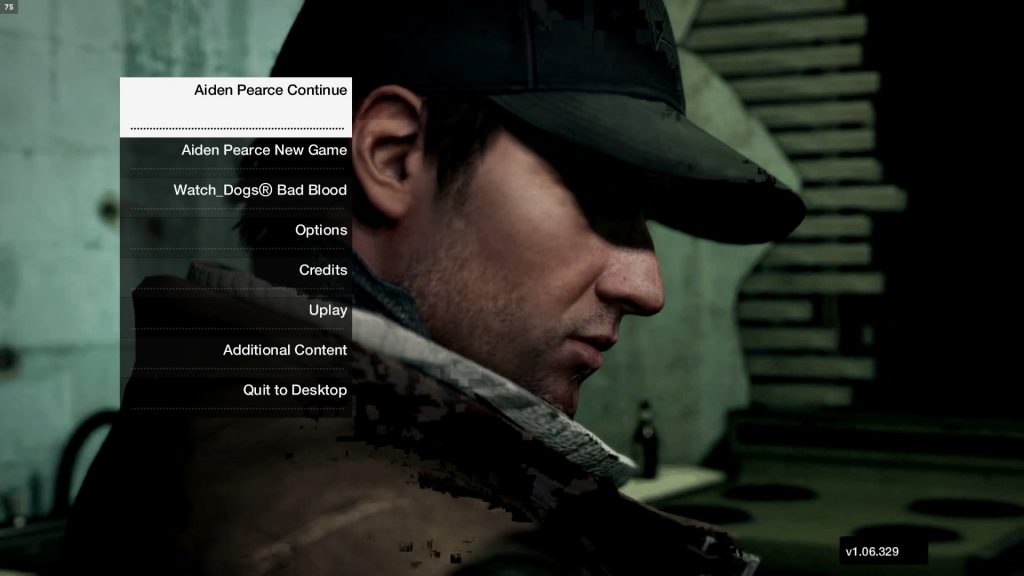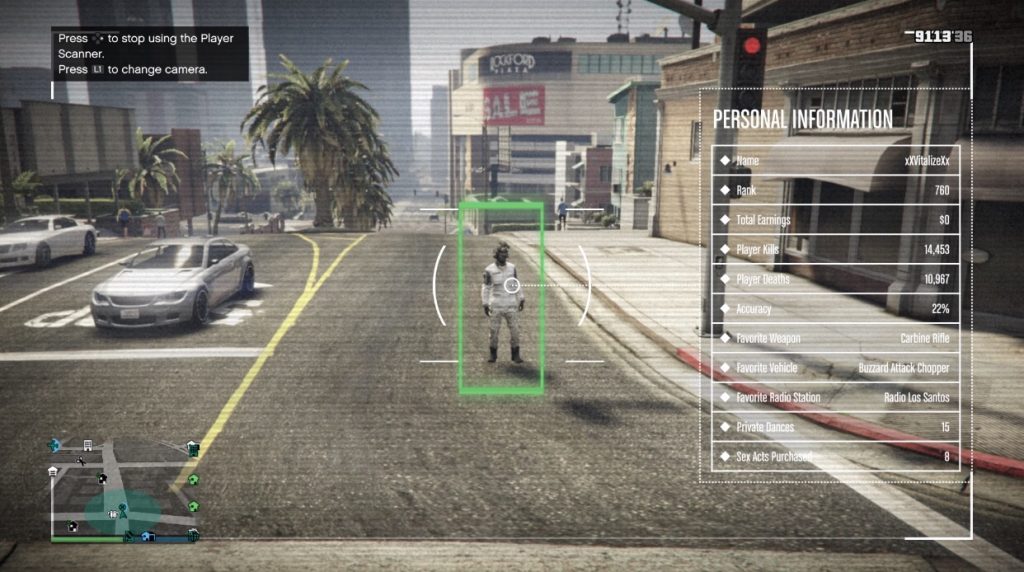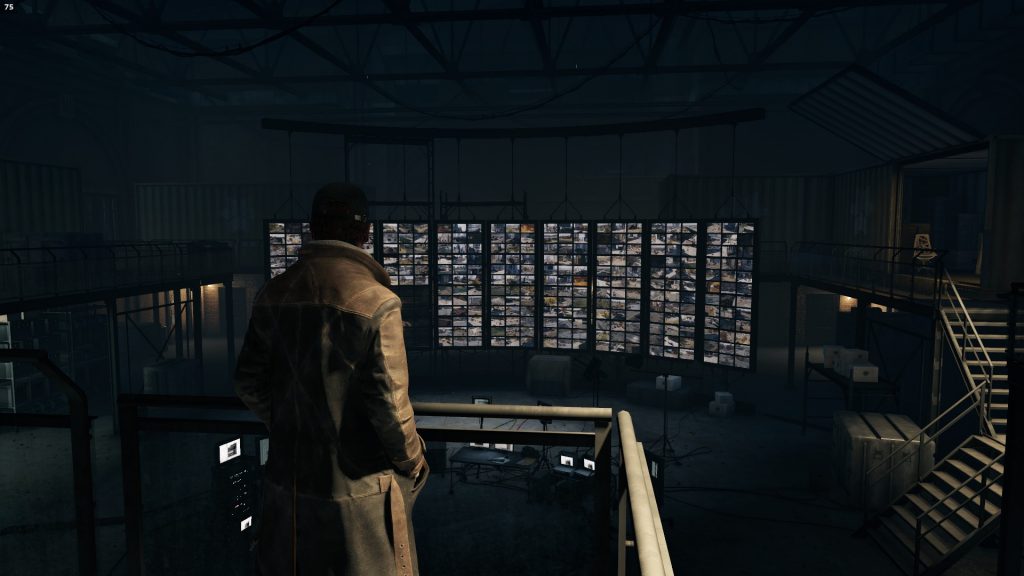Musings about Watch Dogs
Before I start, a word about this website. It has mostly sat abandoned, as having a full-time software development job doesn’t leave me with the comparatively endless amounts of free time and mental bandwidth I once had. What remains, in terms of screen time, is usually spent working on other projects or doing things unrelated to software development that require lower amounts (or different kinds) of mental activity, like playing ViDYAgAMeS, arguing with people on Discord, or mindlessly scrolling through a fine selection of subreddits and Hacker News. While I quite enjoy writing, it’s frequently hard to find something to write about, and while I have written more technical posts in the past – this one about MySQL being the most recent example – these often feel too close to my day job. So, for something completely different, here’s some venting about a video game series – this was in the works for over a year, and is my longest post yet. Maybe this time I’ll actually manage to start and finish a series of blog posts.
Introduction
Watch Dogs is an action-adventure video game series developed and published by Ubisoft and it is not their attempt at an Animal Crossing competitor, unlike the name might suggest. The action takes place in open worlds that are renditions of real-life regions; at the time of writing, there are three games in the series: Watch Dogs (WD1), released in 2014 and set in a near-future reimagination of Chicago; Watch Dogs 2 (WD2), a 2016 game set in a similar “present-day, but next year” rendition of the San Francisco Bay Area, and Watch Dogs: Legion (WDL), a 2020 game set in a… uh… Brexit-but-it’s-become-even-worse version of London. The main shtick of these games, in comparison with others in the same genre, is their heavy focus on “hacking,” or perhaps put more adequately, “an oversimplification, for gameplay and storytelling purposes, of the new delicate information security and societal challenges present in our internet-connected world.”

The games fall squarely into two categories: “yet another Ubisoft open world game” and what some people call “GTA Clones.” It’s hard to argue against either categorization, but the second one, in itself, has some problems. The three Watch Dogs games came out after the initial release of the latest entry in the Grand Theft Auto series (GTA V in 2013), and GTA VI is yet to be officially announced, so snarky people like me could even say that, if anything, Watch Dogs is a continuation, not a clone, of GTA!
More seriously, there are people on the internet who will happily spend some time telling you how “GTA clone” is a terrible designation that is actually hurting open world games in general, by discouraging developers from making more open world games with a modern setting – and I generally agree with them. But I prefer to attack this “GTA clone” designation in a different way, the childish one, where you point the finger back the accuser and yell “you too!”: GTA Online has, in multiple of its updates, also “cloned” some of the gameplay elements most recently seen in Watch Dogs, and GTA in general has also taken inspiration from different open world games that were released over the years.

In a 2018 update, Rockstar brought a “Player Scanner” to GTA Online, which is reminiscent of the “Profiler” in Watch Dogs games, and in the same update, they also introduced weaponized drones that can be compared to the drone in WD2. More recently, GTA Online received a new radio station whose tracks are obtained from collectibles spread around the world – similar to how the media player track list can be expanded in WD1. I doubt that Watch Dogs was the primary motivation or inspiration for these mechanics, and they were hardly exclusive to Watch Dogs, but the point is that the “cloning” argument can go both ways.
Nowadays, when it comes to open world games, there’s hardly anyone “cloning” a particular game series. Watch Dogs games are GTA competitors, but the same can be said about countless other games, including many that don’t even make use of open world mechanics. None of this negates the fact that, despite not being a “GTA clone,” Watch Dogs ticks all the boxes of said unfortunately named category, for which a better name would totally be “open world games set in a place recognizable as the world we presently live in.” And therefore I won’t hide the fact that many of the comparisons I’ll make will be directly against the two “HD Universe” GTA titles, IV and V, as these are definitely the most well-known and successful games in said category.
I have played through all three games in the Watch Dogs series, on PC. I’m certain I spent more time than the average player in the first two games, having played through both twice, going for the completionist approach the first time I played both of them, and having spent more time than I’d like to admit in the multiplayer modes of WD1 and WD2. By “completionist approach,” I mean getting the progression meter to 100% in the first game, and going for all the collectibles spread around the map in WD2, in addition to completing all the missions. Why? Because, in general, I found their gameplay and virtual worlds enjoyable, regardless of their story or general “theme.”
While players and Ubisoft marketing tend to overly focus on the “hacking” aspect of the series, in my opinion its most distinctive aspect, compared to other open world games, is the fact that more than being a shooter, these can be open world puzzle games, requiring some thought when approaching missions, especially when opting for a stealthier approach. Mainly in the most recent two games, and to some degree in the first one too, there are typically multiple approaches to completing missions, catering to wildly different play styles. This extends even to their multiplayer aspects and adds to the replayability of the games. For example, I went for a mainly “guns blazing” approach on my first WD2 playthrough and settled with a “pacifist” approach when I revisited WD2 for a second time – which, in my opinion, is the superior way to get through the game’s story. But let’s not get ahead of ourselves.

Initially, I was going to write a single post with my thoughts about the three games. As I was writing some notes on what I wanted to say, I realized that a single post would be insufficient – even the individual posts per game are going to be exhaustively long. So I decided to write separate posts, in the order the games have been released, which is also the order I have played them. This post will be about the first Watch Dogs, and the next one will be about its sole major DLC, called Bad Blood.
My notes file for the whole series has over 200 bullet points, so hold on to your seats. Before we continue onto WD1, I just want to mention one more thing: I’m going to assume you have some passing familiarity with the three games, even if you have not played them yourself. I won’t be doing much more series exposition; I mostly want to vent about it, not write a recap. Still, I’ll try to give a bit of a presentation on each thing I’ll talk about, so that those who have played the games before can have a bit of a recap, and so that those who haven’t – but for some reason are still reading this – aren’t left completely in the dark.
Onto what is probably the lengthiest ever rant/analysis/retrospective of WD1. Enjoy!
(more…)